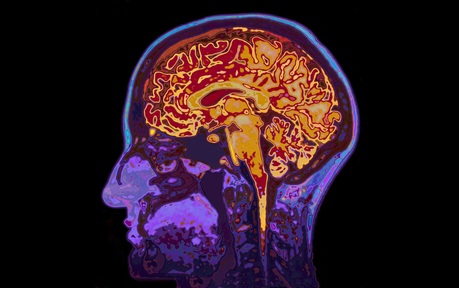Genetic test could indicate an individual's risk of developing Alzheimer's
A genetic assessment developed by scientists in the US may be able to reveal the likelihood of a person developing Alzheimer’s disease and the age at which they may develop it.

As most cases of dementia do not have a single genetic cause, scientists analysed data of more than 70,000 people to understand how genetic variation contributes to the risk of developing Alzheimer’s and identified 31 genetic variations associated with an increased risk.
Dr James Picket, head of research at Alzheimer’s Society, said the approach of the new study was “fairly successful” but should be tested further in non-US populations.
“Preventing the development of dementia symptoms is the holy grail of Alzheimer’s research but to succeed we first need accurate methods to predict who is most likely to develop the condition,” he said.
“This genetic risk score could help identify people to take part in research studies, but is not opening a door to genetic testing for dementia risk in the clinic.”
Dr Rosa Sancho at Alzheimer’s Research UK added that further investigation and thorough research would be required before doctors could confidently use the approach in their diagnosis and treatment of Alzheimer’s.
She said: “We know that Alzheimer’s disease starts to take hold in the brain many years before people show symptoms, and current clinical trials have struggled to test potential new medicines in the early time window when they could be most effective.
“Being able to detect who is at an increased risk of developing Alzheimer’s could revolutionise the way we evaluate potential new drugs.
“This study is one of a number of initiatives combining different genetic factors to assess Alzheimer’s risk.
“While these genetic risk scores hold promise as valuable research tools, they will need to be thoroughly evaluated, tested and refined before they could ever be used to help doctors diagnose or treat the disease.
“This particular study focused on people of European descent and the risk score now needs to be applied in other populations, as we know that Alzheimer’s risk can vary between different ethnic groups.”
'Genetics only part of the story'
The US study used collated data to calculate a so-called “polygenic hazard score” (PHS) before developing a test for this to predict the likelihood and age of an individual developing Alzheimer’s disease based on the 31 associated genetic variations.
The team found that a high PHS was associated with decreased memory and a reduction in brain volume, and individuals with a high score were more likely to develop Alzheimer’s than those with a lower score.
However, Dr Sancho highlighted that the scoring system is not an accurate prediction of a person’s risk of developing Alzheimer’s.
She said: “This study does not suggest that having a high polygenic hazard score means you will definitely develop Alzheimer’s, nor does a low score mean you are immune from the disease.
“Genetics is only part of the story and we know that lifestyle factors also influence our risk of developing Alzheimer’s.
“The best current evidence points to habits we can all adopt to help lower our risk and indicates that what’s good for your heart is also good for the brain.
“Eating a healthy balanced diet, keeping physically and mentally active, not smoking, drinking in moderation, keeping blood pressure and cholesterol in check and maintaining a healthy weight are all ways to support healthy brain ageing.”
Findings from the study were published in PLOS Medicine, entitled Genetic assessment of age-associated Alzheimer disease risk: Development and validation of a polygenic hazard score.
Latest News
 29-Jul-24
Dementia Bus gives carehome.co.uk staff insight into life with dementia
29-Jul-24
Dementia Bus gives carehome.co.uk staff insight into life with dementia
 27-Jul-23
UK's top home care agencies in 2023 revealed
27-Jul-23
UK's top home care agencies in 2023 revealed
 30-Nov-22
A quarter of older people keep their falls secret from family
30-Nov-22
A quarter of older people keep their falls secret from family
 29-Nov-22
'Covid-19 has not gone away' say terminally ill
29-Nov-22
'Covid-19 has not gone away' say terminally ill
 28-Nov-22
IT consultant who received poor care opens 'compassionate' home care business
28-Nov-22
IT consultant who received poor care opens 'compassionate' home care business